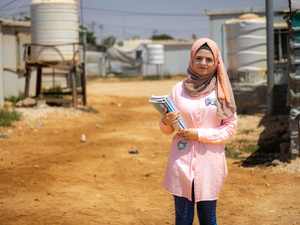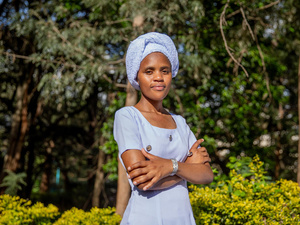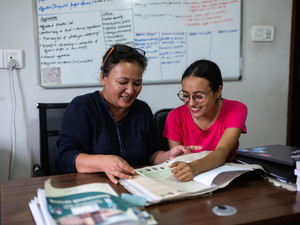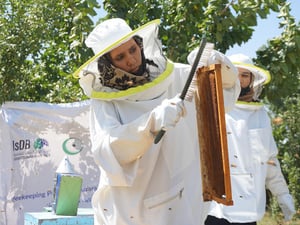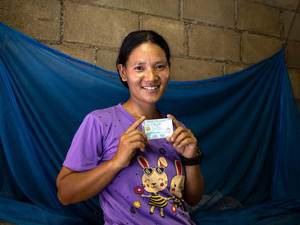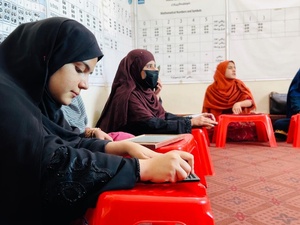Unequal treatment of women risks creating statelessness in at least 25 countries
Unequal treatment of women risks creating statelessness in at least 25 countries
GENEVA - A UNHCR survey has found that unequal treatment of women in nationality laws affects most continents of the world. At least 25 countries maintain nationality laws that do not allow women to confer nationality on their children.
"A child born stateless today faces a future of uncertainty and insecurity," said Erika Feller, UNHCR's Assistant High Commissioner for Protection. "When there is discrimination in conferring nationality, we see children becoming stateless from the moment they are born."
Most of the states that deny mothers the right to confer nationality are found in the Middle East and North Africa (twelve states) and Sub-Saharan Africa (nine states), with the remainder in Asia (four states) and the Americas (two states).
Children become stateless in these countries because in some instances they can neither acquire the nationality of their mother nor of their father. This can happen, for example, if the father is himself stateless, or if laws fail to grant nationality to children born outside the country of their father. In addition, some children fall into a bureaucratic quagmire when a father dies or abandons them, leaving them without documentation to confirm their nationality.
According to the study, states are showing growing willingness to take action to remedy gender inequality in citizenship laws. Reform has been undertaken in recent years in Sri Lanka, Egypt, Iraq, Algeria, Indonesia, Morocco, Bangladesh, Zimbabwe, Kenya, Tunisia, and Monaco. All have amended their laws to grant women equal rights as men to pass their nationality to their children. UNHCR is working with a number of other countries to make further reforms.
"Gender discrimination was once pervasive around the world," said Feller. "We have now seen a broad trend to reform nationality laws to address this cause of statelessness and applaud the States which have done so."
Up to 12 million people around the world are estimated to be stateless, meaning they are not considered as nationals of any state. Of this group, as many as half are children. Stateless people are some of the most marginalised and destitute in the world; they are often invisible populations that are difficult to count. More research is needed to identify how many children are stateless as a result of gender discriminatory laws.
In December 2011 UNHCR convened a ministerial meeting to commemorate the 1951 Convention Relating to the Status of Refugees and the 1961 Convention on the Reduction of Statelessness. During this meeting several countries pledged to eradicate discrimination in nationality legislation.
Background Note on Gender Equality, Nationality Laws and Statelessness
